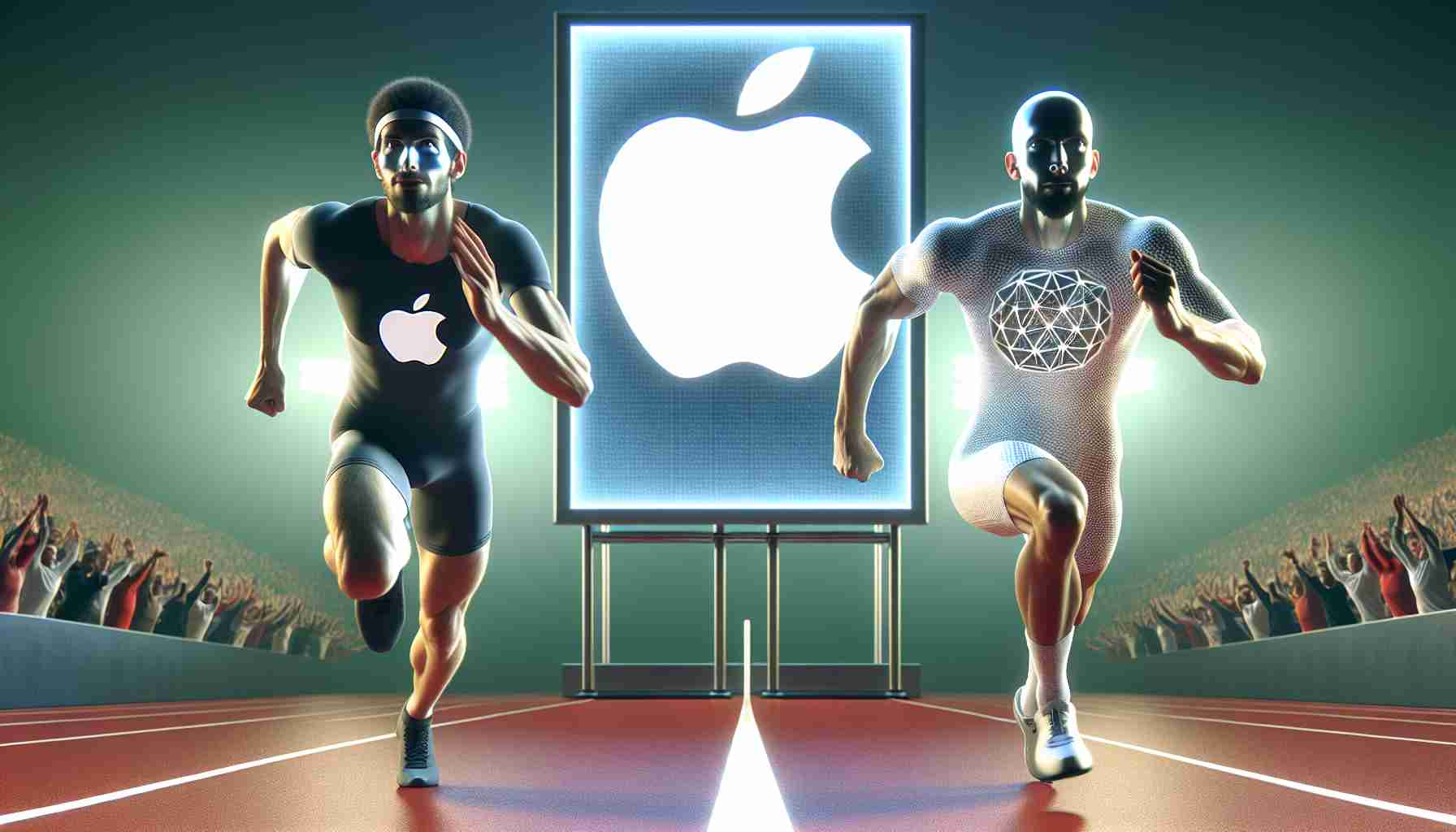Apple’s reign as the uncontested champion of smartphone satisfaction appears to be challenging as new insights reveal that the tech giant is now sharing the throne with its competitor Samsung. This development emerged from the latest American Customer Satisfaction Index, which noted Apple’s customer satisfaction score slightly increased, whereas Samsung’s score had a more pronounced improvement.
Samsung and Apple now find themselves at a deadlock, with aggregate scores that are identical. However, when focusing on the 5G technology segment, Samsung has nudged past Apple, highlighting its advancements and growing favor among 5G users. The competition remained fierce, with both giants tying with a score of 82, yet Samsung managed to secure a slight edge in 5G satisfaction with a score of 83.
Despite the head-to-head competition at the top, the industry as a whole is celebrating, as customer satisfaction experienced a general uplift. 5G technology is becoming increasingly popular among consumers, offering satisfaction rates markedly higher than older technologies. Both Samsung and Apple cater to their 5G crowds but Samsung has lately seen a bit more success in this arena.
Apart from the frontrunners, other players like Motorola and Google are progressing as well, striving to better meet customer expectations. The data presented a picture of a marketplace where smartphone manufacturers continue to strive for innovation and customer contentment, with the gap narrowing as companies succeed in creating more satisfying high-tech experiences.
Key Questions & Answers:
Q: Why is customer satisfaction in the smartphone industry important?
A: Customer satisfaction is crucial because it impacts brand loyalty, repeat purchases, and word-of-mouth recommendations. High satisfaction typically correlates with higher market success and profitability for companies like Apple and Samsung.
Q: What challenges do Apple and Samsung face in maintaining or increasing customer satisfaction?
A: Both brands must consistently innovate, address customer service issues, manage supply chain disruptions, and maintain competitive pricing to keep customers happy amidst intense market competition.
Q: What controversies are associated with the Apple and Samsung competition?
A: Past controversies have included patent lawsuits between the two companies over intellectual property rights as well as debates over the environmental impact of smartphone production and planned obsolescence practices.
Advantages and Disadvantages:
Advantages for Apple:
– Strong brand loyalty and a robust ecosystem that ties together hardware, software, and services seamlessly.
– Regular updates to the operating system that keep older devices current.
– High resale value for its devices.
Disadvantages for Apple:
– Higher product prices compared to some competitors, which can be a barrier to entry for cost-conscious customers.
– Some criticize Apple for not being as innovative in recent years compared to its early days.
Advantages for Samsung:
– Broad range of products catering to various market segments, from budget to premium devices.
– Samsung often leads in hardware innovation, such as display and camera technologies.
– Flexibility in software customization due to the use of the Android operating system.
Disadvantages for Samsung:
– The fragmentation of the Android market can lead to inconsistencies in the user experience across different devices.
– Security updates and OS upgrades may not be as timely or long-lasting as those on Apple devices.
For those interested in learning more about these tech giants, additional information can be accessed directly on their official websites:
– Apple
– Samsung
Remember, while these links direct to the main domains and are checked for validity as of my knowledge cut-off in 2023, web addresses can change over time, so always ensure the URL is secure and correct before accessing.
The source of the article is from the blog be3.sk
